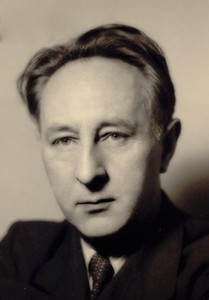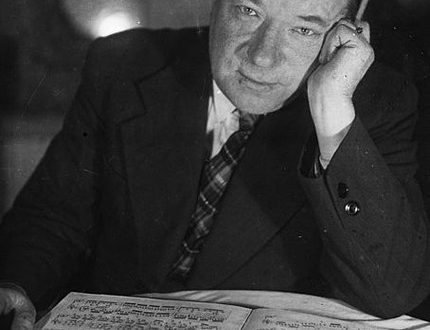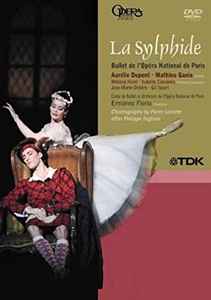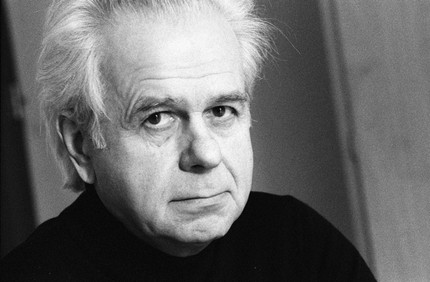
Bohuslav Martinů |
Bohuslav Martinů
Art is always a personality that unites the ideals of all people in one person. B. Martin

In recent years, the name of the Czech composer B. Martinu has been increasingly mentioned among the greatest masters of the XNUMXth century. Martinou is a lyric composer with a subtle and poetic perception of the world, an erudite musician generously endowed with imagination. His music is characterized by the juicy coloring of folk-genre images, and the tragic drama born of the events of wartime, and the depth of the lyric-philosophical statement, which embodied his reflections on “the problems of friendship, love and death.”
Having survived the difficult vicissitudes of life associated with staying for many years in other countries (France, America, Italy, Switzerland), the composer forever retained in his soul a deep and reverent memory of his native land, devotion to that corner of the earth where he first saw the light. He was born in the family of a bell ringer, shoemaker and amateur theater-goer Ferdinand Martin. The memory kept the impressions of childhood spent on the high tower of St. Jacob’s Church, the ringing of bells, the sound of the organ and the endless expanse contemplated from the height of the bell tower. “… This expanse is one of the most profound impressions of childhood, especially strongly conscious and, apparently, playing a big role in my whole attitude to composition … This is the expanse that I constantly have before my eyes and which, it seems to me, I always looking for in my work.
Folk songs, legends, heard in the family, deeply settled in the mind of the artist, filling his inner world with real ideas and imaginary ones, born of children’s imagination. They illuminated the best pages of his music, filled with poetic contemplation and a sense of the volume of the sound space, the bell coloring of the sounds, the lyrical warmth of the Czech-Moravian song. In the mystery of the musical fantasies of the composer, who called his last Sixth Symphony “Symphonic fantasies”, with their multi-colored, exquisitely picturesque palette, lies, according to G. Rozhdestvensky, “that special magic that captivates the listener from the very first bars of the sound of his music.”
But the composer comes to such pinnacle lyrical and philosophical revelations in the mature period of creativity. There will still be years of study at the Prague Conservatory, where he studied as a violinist, organist and composer (1906-13), fruitful studies with I. Suk, he will have the happy opportunity to work in the orchestra of the famous V. Talikh and in the orchestra of the National Theater. Soon he will leave for Paris for a long time (1923-41), having received a state scholarship to improve his composing skills under the guidance of A. Roussel (who on his 60th birthday will say: “Martin will be my glory!”). By this time, Martin’s inclinations had already been determined in relation to national themes, to impressionistic sound coloring. He is already the author of symphonic poems, the ballet “Who is the strongest in the world?” (1923), cantata “Czech Rhapsody” (1918), vocal and piano miniatures. However, the impressions of the artistic atmosphere of Paris, the new trends in the art of the 20-30s, which so enriched the receptive nature of the composer, who was especially carried away by the innovations of I. Stravinsky and the French “Six”, had a huge impact on Martin’s creative biography. Here he wrote the cantata Bouquet (1937) on Czech folk texts, the opera Juliette (1937) based on the plot of the French surrealist playwright J. Neve, neoclassical opuses – Concerto grosso (1938), Three ricercaras for orchestra (1938) , a ballet with the singing of “Stripers” (1932), based on folk dances, rituals, legends, the Fifth String Quartet (1938) and the Concerto for two string orchestras, piano and timpani (1938) with their disturbing pre-war atmosphere. In 1941, Martino, together with his French wife, was forced to emigrate to the United States. The composer, whose compositions were included in their programs by S. Koussevitzky, S. Munsch, was received with honors worthy of a famous maestro; and although it was not easy to get involved in the new rhythm and way of life, Martin is going through one of the most intense creative stages here: he teaches composition, replenishes his knowledge in the field of literature, philosophy, aesthetics, natural sciences, psychology, writes musical and aesthetic essays, composes a lot . The composer’s patriotic feelings were expressed with special artistic force by his symphonic requiem “Monument to Lidice” (1943) – this is a response to the tragedy of the Czech village, wiped off the face of the earth by the Nazis.
In the last 6 years after returning to Europe (1953), Martinu creates works of amazing depth, sincerity and wisdom. They contain purity and light (a cycle of cantatas on a folk-national theme), some special refinement and poetry of musical thought (the orchestral “Parables”, “Frescoes by Piero della Francesca”), the strength and depth of ideas (the opera “Greek passions”, oratorios “Mountain of Three Lights” and “Gilgamesh”), piercing, languid lyrics (Concerto for oboe and orchestra, Fourth and Fifth Piano Concertos).
Martin’s work is characterized by a wide figurative, genre and stylistic range, it combines improvisational freedom of thinking and rationalism, mastering the most daring innovations of his time and creative rethinking of traditions, civic pathos and an intimately warm lyrical tone. A humanist artist, Martinu saw his mission in serving the ideals of humanity.
N. Gavrilova





